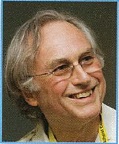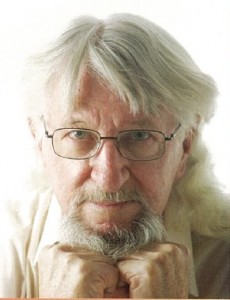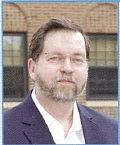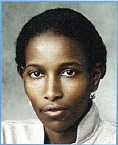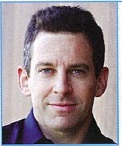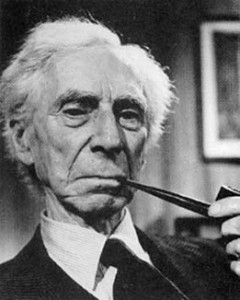Global Atheists’ Convention
May 3, 2012
1 Introduction
I attended the Global Atheists’ Convention held at the Melbourne Convention and Exhibition Centre from Friday 13th April (good luck?) to Sunday 15th April. Our GPS did not recognize “1 Convention Place” and so we had difficulty finding where to go. Ann dropped me off where we thought it was. Almost as soon as I got out of the car, none other than Richard Dawkins walked straight past me; so I knew I was in the right place.
Richard Dawkins is one of the “Four Horseman of the Apocalypse”. “The Four Horsemen” is a play on the corresponding figures in the Book of Revelation (chapter 6). The 4 horsemen are outspoken figures for the new atheism movement. The other 3 are Christopher Hitchens, Sam Harris and Daniel Dennett. Unfortunately, Christopher Hitchens died of cancer on December 15 last year and so he declined to attend. However the other 3 were there. Their key books are shown in the following table.
Table 1: Key books by New Atheists
| Author | Book |
| Richard Dawkins | The God Delusion |
| Christopher Hitchens | God is not Great Why Religion Poisons everything |
| Daniel Dennett | Breaking the Spell |
| Sam Harris | Letter to a Christian Nation |
There were about 4,000 atheists in attendance plus 5 intrepid Christians under the auspices of the Melbourne City Bible Forum. Throughout the convention, it was assumed that the atheistic world view was correct and there was virtually no attempt to justify that belief.
During the GAC I had a number of conversations with atheists. I told them I was not an atheist but an observer. In fact I was a spy; and I told some of them that I was actually setting up a chapter of Reasonable Faith in Adelaide. All of the people that I spoke to were friendly and interested. One woman said something like, “I suppose you are going to write nasty things about us”. I assured her that I wouldn’t, so I hope that I am fair.
I made notes on the individual speakers. However, this summary spans the speakers and provides my overall impressions.
2 Theme
The opening address was given by David Nicholls. David lives in Maitland in South Australia. He is the current president of the Atheist Foundation of Australia (AFA).
The conference theme was “Celebration of Reason” and it was commonly attempted to associate reason, logic, truth, philosophy and evidence-based science with atheism, whereas religion stifles questioning and is a force of darkness. So how do you feel? David also claimed that reason is opposed to faith. Atheists have faith in reason, but Christians have blind faith without reason or evidence.
On 11 September 2001 Islamic terrorists flew aeroplanes into the Twin Towers in New York, killing over 3,000 people. This was done in the name of Islam. Islam is a religion, so all religions must be evil. This event was probably a significant trigger in the New Atheist movement.
3 Quality of Speakers
Naturally the quality of speakers varied greatly. About half of them were excellent. Some were balanced and readily admitted weaknesses in atheism and acknowledged merit in opposing views. In my view Peter Singer, Sam Harris, Leslie Cannold, Ayaan Hirsi Ali, Lawrence Kraus, Eugenie Scott and Jason Ball were of this ilk. I even agreed with many of Richard Dawkins’ comments. I cannot comment on AC Grayling or Geoffrey Robertson, as I didn’t hear them. Lawrence Kraus gave the only talk that contained significant scientific content. It was an excellent presentation and I intend following up his arguments. I purchased his book, “A Universe from Nothing”.
4 The Aggressive Atheist
Most of the speakers were quite restrained, but the final speaker (Paul Zachary Myers) was the most aggressive.
His grand plans are an assault on heaven and the killing of God. His talk was roughly as follows:
Society started with the family, then centred on the king, the city and then the world. Jews were a people of the book and the book persisted beyond the city. The ideas of Christianity are also captured in a book and so the ideas persist longer than the people. Ideas change the world, but you can kill an idea. Churches are reacting to the new atheists. We have a better idea and science is the God killer. We are the people of reality and you Christians are false. We are products of the natural world but are also members of a universal tribe. Science bridges the differences between tribes since science works. Our only authority is reality. Science and religion are in opposition. Assertion is the enemy of science. What matters is what is true. Apocalyptic views are an excuse for laziness, relying on a left behind book that is clearly lacking supernatural sources.
He attacked the morality of the atonement. He then attacked various Christian extremes (outliers) but he then turned towards Christian moderates. “I don’t like you!” he said. A good atheist is interested in truth and evolution is a fact. Atheists like being rebels and are proud to be different. We are cranky individualists. There are no shepherds. We are hunting. We are wolves, we plan to conquer and Christians have cause to tremble.
The crowd cheered and the rattles waved. Bring it on!
5 Separation of Church and State
A hot button for atheists was the separation between church and state. They considered it unjust that religion, especially Christianity, should receive any preferential treatment, such as tax breaks, the opportunity to proselytise within schools or the use of school chaplains. It is Ok to teach comparative religion, but this should be done by professional teachers. However, there is competition for what is taught in the curriculum. Some of the speakers freely admitted that separation of church and state was actually promoted by Christians. Some speakers did not want funding of Christian or private schools. I don’t think this argument is completely convincing. If people pay taxes and want their children to go to private schools due to lack of confidence in the public schooling system then the fact that they pay taxes means that some government funding is justifiable. The real issue is the actual distribution.
6 Ethics
There was a strong interest in ethics at the conference. It was often claimed that we can have ethics without God. Ethics should be based on reason to minimise harm and we don’t need religion to tell us what is right and wrong. We have arrived here by chance and for no reason. Thus it is up to us to create our own morality. Dawkins claimed that we don’t get our morals from religion but from reason. Richard Dawkins mentioned the instance where a man was stoned for gathering sticks on the Sabbath (Number 15: 32-36). He did not consider the context sympathetically. However, he concluded that we use our own reason to evaluate Biblical morality and thus our reason is a higher authority than Biblical revelation. Thus we should rely on our own sense of right and wrong. Morality also develops with time. We have 21st century morals. Darwin and Huxley were racist and would be considered revisionist now, as they were people of their own time. Morality should be based on consequences in order to prevent harm. Eg in the area of abortion there is nothing inherently sacred about humans. He was pro euthanasia but the slippery slope should be taken seriously. Designer babies are a viable option to remove bad genes. We can select cells. At least the issue should be discussed. Suffering and pain does have a purpose, at least as a deterrent.
I got the impression that liberal left ethics were assumed to be true such as:
- Pro-gay marriage based on the equal rights argument,
- Pro abortion based on a woman’s right to choose,
- Feminist values,
- Pro euthanasia, and
- Permissive sexual values etc.
However, an atheist who came to one of the Reason for Faith seminars claimed that there is no uniformity in atheists’ ethical beliefs. They have no hierarchy and there are no approved sets of beliefs.
7 God as a Moral Monster
A common theme is that we should not get our moral values from the Bible, as the God of the Old Testament is a moral monster. Jim Jeffries did a very clever and entertaining parody of God as a party pooper. God is self-obsessed. He wants people to sing praise songs to him. He hates fags and anyone who doesn’t do what he wants. Dan Barker also cited the case where Satan incited God to destroy Job without reason (Job 2:3).
8 The Atonement
The morality of the atonement came under frequent attack. Is man really evil? Don’t we have a natural inclination to do good? Why original sin? Why should we be held responsible for being born into sin? Why should God become a man and die to satisfy his own requirements? Why can’t he just forgive? Eternal punishment in hell seems to be an over-reaction.
I believe we should take on these questions and provide an explanation of the morality of the atonement. This is a fantastic opportunity to state the gospel at the deepest possible level.
9 Islam
Ayaan Hirsi Ali is a North African woman who was brought up as a Muslim but has since defected. Hence she has 2 bodyguards.
She gave an African perspective of those countries where Islam dominates, usually associated with bribery and repression. Islam is far worse than Christianity. Islamic countries have discriminatory tax practices, persecute Christians and Muslim minorities, suppress freedom of speech and freedom of the press, suppress women, practice genital mutilation and enforce marriage of young girls, as young as 9 years old. According to Ayaan they are all actually devoted to the destruction of Israel and have no commitment to a 2 state solution with the Palestinians. However atheists and the liberal west are often soft on Islam and often attack Christianity more than Islam. This may be due to white guilt, a romantic perspective on primitive cultures or just plain fear of reprisal. It is often the case that serious Christians are more effective at identifying the issues and providing effective opposition. Christianity may be the major force that holds back an Islamic winter.
10 Christians Doing Bad Things
On one occasion the compere asked “Who here is a lapsed catholic?” About 1,000 people put up their hands. He then asked, “Who is a lapsed Baptist”. Only one person put up their hand. As a Christian who is half Baptist and half Anglican, I should be proud, but I am not exactly sure what this result means. Anyway, it was obvious that the problems in the Roman Catholic Church are a significant factor in people becoming atheists. Likewise common targets were Young Earth Creationism, Intelligent Design, the US religious right, those who oppose gay marriage, abortion or euthanasia, or those who impose their values on others (bigots). I don’t think that all of these targets are necessarily bad, but it is obvious that one of the churches’ major enemies is itself.
However, groups should not be judged by their worst examples. At one stage it was observed that every group has their outliers and it is not valid to judge groups by outliers. Atheists do not like being aligned with Stalin, Mao Tse Tung and Pol Pot.
One guy that I met was a former Assemblies of God minister, who is now an atheist. He used to speak in tongues and had participated in healings. The healings that he saw he now considers psychosomatic or temporary. He was a nice guy and spoke openly about his experiences. Unfortunately we did not have much time to talk and he had to leave quickly but we departed on very friendly terms.
11 Sam Harris on Death
Sam Harris is one of the 4 horsemen and has a PhD in neuroscience.
He was supposed to talk on free will, but changed his topic to the subject of death. As an atheist, this was a very brave move. You could hear a pin drop. The following is a summary of what he said.
Death and its denial are fundamental to religion, but death is the end and there is nothing after death. Death is not the problem; life is the problem. Life is an emergency and everyone has a run of bad luck but we must still try to make this world a better place. Real progress is a recent phenomenon. We cannot make this world a paradise and there is no satisfying way to hold on to the past. Atheism itself does not have much to offer, except only as a (supposed) corrective. Science, art and philosophy fill the void. Most people believe for emotional reasons. How can people make sense of tragedies? Religions provide an answer that most people think they need. Belief in heaven is consoling but atheism does not offer any such consolation.
We have to deal with this. We should admit that we waste a lot of our time caring about the wrong things and petty concerns. We spend a lot of our time in denial. We should rather make the most of the present time. What is the point of life? The answer is a change in attitude to live in the present moment. It is always now. The past is just a thought arriving in our memory. We are hoping to be happy in the future and we are always solving a problem. How can we be fulfilled in the face of death? We want fulfilment and a lack of suffering, even though some suffering is desirable for progress.
Consciousness is everything and your mind is all you have. What is the significance of your bucket list? What about our might have beens? We suffer from neurosis. Self conversations are a source of sorrow. We are constantly creating and repairing a world in which our minds want to live. We must see the sacred in the secular.
It reminded me of Bertrand Russell’s quote (A Free Man’s Worship):
That man is the product of causes which had no prevision of the end they were achieving; that his origin, his growth, his hopes and fears, his loves and his beliefs, are but the outcome of accidental collocations of atoms; that no fire, no heroism, no intensity of thought and feeling, can preserve an individual life beyond the grave; that all the labours of the ages, all the devotion, all the inspiration, all the noonday brightness of human genius, are destined to extinction in the vast death of the solar system, and that the whole temple of man’s achievement must inevitably be buried beneath the debris of a universe in ruins — all these things, if not quite beyond dispute, are yet so nearly certain that no philosophy which rejects them can hope to stand. Only within the scaffolding of these truths, only on the firm foundation of unyielding despair, can the soul’s salvation henceforth be safely built.
Perhaps it is even more expressively captured in this famous quote from Macbeth,
To-morrow, and to-morrow, and to-morrow,
Creeps in this petty pace from day to day,
To the last syllable of recorded time;
And all our yesterdays have lighted fools
The way to dusty death.
Out, out, brief candle!
Life’s but a walking shadow, a poor player,
That struts and frets his hour upon the stage,
And then is heard no more.
It is a tale Told by an idiot, full of sound and fury,
Signifying nothing.
12 The Reason for Living
One of the major themes that came through was the contrast in the reason for living. The atheist believes that there is nothing after death and this life is all we have. Thus we should live for this life and make the most of what we have rather than wasting our time preparing for the next life. This was one of Dawkins’ themes. He advocated redesigning our morality and social institutions in accordance with a naturalistic world view.
By contrast living for God is a master/servant relationship. According to Dan Barker, holding our hands together in prayer is a symbol of shackled hands. Why live for another? We arrived here by accident. We should be autonomous, we should decide our own morality and we should make our own decisions about how we live and manage this world, rather than relying on an ancient text.
Sam Harris’ talk on death was pertinent. Ultimately the atheist has very little to say to console in the face of tragedy or injustice. Death ends all and life is ultimately meaningless. However, this is not a knock down argument for the Christian. If the atheist is ultimately right then it is better to accept life’s limitations rather than believing a lie, just because it makes us feel better.
13 Reason for Faith Conference
After the conference I helped Melbourne City Bible Forum with their Reason For Faith festival, which was held in response to the GAC. My main contribution was in handing out pamphlets at railway stations. I found this emotionally draining due to the frequent rejection. Only about 20% of people accepted the pamphlets and I felt that I was an imposition on their lives. A few people stopped to talk, but these were mainly Christians. However, it was still obviously a worthwhile activity as almost half of those who attended some of the meetings were there due to the pamphlets.
At one event, which was a discussion panel between some Christian scientists and some atheists, I met Graham Oppy. He is an atheist, an Australian and a world class philosopher. He is also a very nice guy. He has had written debates with William Lane Craig on the Kalam Cosmological argument and the fine tuning argument. I had about a 15 minute discussion with him in which he briefly covered some of the issues with the arguments. I didn’t understand or remember all he said, but I intend following up his writings.
14 An Assessment
There was an element of hubris at the conference. Atheists think they are the smart, rational people. They are the “brights”, the rationalists and the free thinkers. Thus they bolster their own self image with these self-complimentary terms. However, as a Christian, I believe in reason, logic, truth, questioning and evidence based science just as much as they do (or even more so). In fact, Lawrence Leoung joked, “We are all freethinkers; and we all think the same”. Many a true statement is made in jest. There is no necessary or logical link between these values and atheism. In fact these values arose out of a Christian context, which they generally fail to acknowledge. Thus their arguments were generally applied in a one sided manner. For example, Daniel Dennett stated that it is very hard for people to change their beliefs. This is very true. However, he was referring to the difficulty of believers changing their mind towards the supposed truth of atheism, but did not seem to consider that it is also true in the reverse direction. In fact nearly all of his arguments could be applied in the reverse direction, but he seemed blissfully unaware of this.
On the other hand there were many things that I agreed with during the conference:
- I am sympathetic to separation of church and state.
- I believe we should work to make this world a better place.
- In the area of morality, we face new issues today that were not imagined 2000 years ago and we have to work out new solutions.
- I also share their concerns about Islam.
However, there are deep fundamental differences with the Christian world view. The atheist wants to be autonomous and optimise this life in some way. Autonomy entails making our own decisions without reference to any other authority. By contrast, Christians believe that the Bible is a revelation from God. The purpose of life cannot be understood without that revelation. Hebrews 1:1-2 states, “In the past God spoke to our forefathers through the prophets at many times and in various ways, but in these last days he has spoken to us by his Son, whom he appointed heir of all things, and through whom he made the universe.” So God has spoken to us. The other fundamental difference is our highest fulfilment is found not by pleasing ourselves but by doing the will of God. As Jesus said, “If anyone would come after me, he must deny himself and take up his cross and follow me. For whoever wants to save his life will lose it, but whoever loses his life for me will find it. What good will it be for a man if he gains the whole world, yet forfeits his soul? Or what can a man give in exchange for his soul? ” (Matt 16:24-26)
One of Christopher Hitchens’ themes was that “religion poisons everything”. Now, in the past 2000 years some dreadful things have been done in the name of Christ, but, as admitted at the conference, it is wrong to judge a movement by its outliers. The following Sunday I returned to my local church. It is a small affair of mainly working class people. However, there are a substantial number there in whom the gospel has borne fruit. They are warm, self effacing and wonderful people whom I can only aspire to copy. Does religion poison everything? Naah, it just ain’t true.
